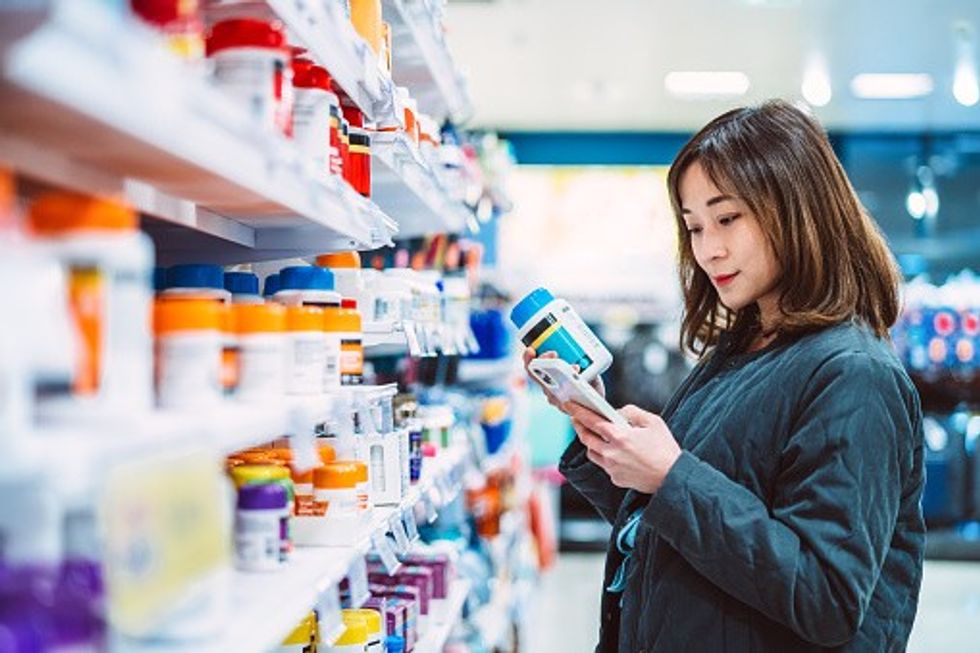As healthcare systems struggle with demand and consumers seek faster, more convenient ways to treat their minor illnesses and ailments, community pharmacies stand at the forefront of a self-care revolution.
Earlier this month, the Department of Health and Social Care made a bold move, encouraging more medicine reclassification applications across a range of health categories and conditions. ‘The List’, which was drawn up by a working group including clinicians and pharmacists, could unlock many new over-the-counter (OTC) treatments. And with 77% of adults agreeing that people should take more responsibility for their own health, we could begin to see a seismic shift in the way people manage their health over the next few years.
A major opportunity for pharmacies
For pharmacies, this shift presents a major opportunity. As more prescription medicines are ‘switched’ to OTC, consumers are looking to their local pharmacies for trusted advice and convenient access to treatments. By positioning themselves as self-care champions, pharmacies can increase footfall, enhance customer trust, and boost revenues.
The benefits of self-care extend far beyond the positive impact to a pharmacy’s bottom line. If more consumers choose OTC treatments for common ailments instead of visiting a GP or A&E, the NHS could save a staggering £1.7 billion annually. Not to mention the wider economic impact through reduced workplace absenteeism. Take periods for example; heavy and painful periods cost the economy £8.4bn every year through missed workdays alone. Our recently launched P-med brands, Evana® heavy period relief (tranexamic acid), and Ultravana® period pain relief (naproxen) aim to tackle that statistic and help women overcome the monthly disruption that their period may bring.
However, manufacturers can’t effectively launch new OTC brands without the support of pharmacists and their teams. Pharmacists play a crucial role in guiding patients towards effective self-care solutions, but are already under immense pressure, with time and resources stretched thin. Whilst I can’t fix the ongoing challenges with pharmacy contracts and access to funding, I do believe that OTC medicines could help lighten the load by eliminating the need for complex paperwork and lengthy consultations.
Patient Group Directions (PGDs) have been positive in expanding pharmacy services, but they’re not always the most practical solution. OTC medicines provide a far simpler alternative, allowing pharmacists to maximise their impact with minimal administrative burden. With an OTC sale, pharmacists can focus on quick, efficient education and product recommendations using back-of-pack information to ensure customers leave with the right treatment without unnecessary delays.

Reducing NHS dependency
Currently, 90% of pharmacy income comes from the NHS, and as much as we all value it, the NHS cannot afford to fund every treatment at the point of use forever. The reality is, we need to change.
What if we could reduce NHS dependency down to 85% by 2028? Imagine what that 5% shift could mean for a pharmacy business: more freedom, more control, and most importantly, more profit. The OTC market represents a powerful commercial opportunity for pharmacies. OTC medicines save the NHS £6.4 billion by preventing unnecessary prescriptions. By shifting just 5% more NHS prescriptions to OTC, an additional £1.4 billion in savings could be realised. For pharmacies, this translates to increased sales and higher margins on self-care products.
By my estimate if every member of the adult population spent an additional £18.50 on OTC medicines each year, we could bring down that 90% funding reliance on the NHS to 85% - that’s a couple of packs each and has to be an achievable target and something to go for, doesn’t it?
Let’s go back to periods for a moment: 1 in 3 women experience heavy periods, and many suffer in silence or delay treatment because they can't easily access the care they need. Traditionally, they would have to book a GP appointment, wait, get a prescription, and then head to the pharmacy. Now, with products like Evana® on shelf, you can cut out all that waiting.
Imagine a woman coming into your pharmacy in discomfort, frustrated by her condition and walking out with an effective solution in hand. You’ve not only solved a real problem for her but also built trust and loyalty. She knows that your pharmacy is the place to go for fast, convenient, and professional support. That’s the kind of customer satisfaction that builds long-term relationships—and repeat business. Plus, each OTC sale comes with higher profit margins than NHS prescriptions, which means better financial outcomes for your pharmacy.
Pharmacists can lead self-care revolution
Pharmacies are evolving. Increasingly, they will serve as the first point of care for patients seeking treatment for self-manageable conditions. At Maxwellia, we are committed to making this transition seamless by developing new OTC medicines that align with government priorities. Each new switch expands the pharmacy toolkit, enabling pharmacists to serve their communities more effectively.
Our goal is to work in partnership with pharmacies to create brands that are easy to supply, trusted by consumers, and commercially successful. We welcome collaboration and feedback from pharmacists as we continue shaping the future of self-care.
The self-care revolution is here, and community pharmacies have the power to lead it. By embracing OTC medicines, they can drive revenue growth, relieve NHS pressures, and enhance patient outcomes. At Maxwellia, we’re committed to supporting pharmacies every step of the way—because when self-care thrives, everyone benefits.
Anna Maxwell MPharmS is the founder and CEO of Maxwellia, a fast-growing consumer healthcare company.












